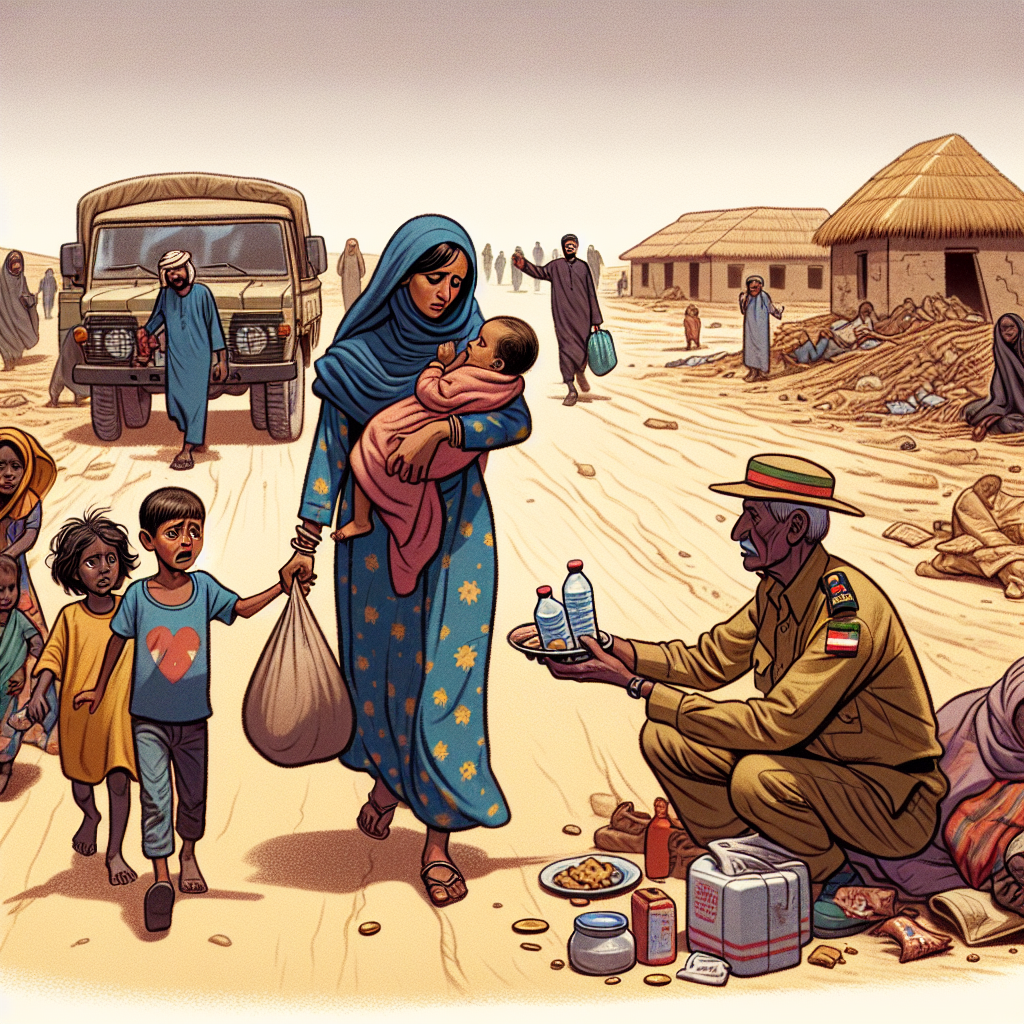Sudan Crisis Creates Worst Civilian Protection Crisis as Millions Flee Violence
Sudanese Refugees in Neighboring Countries Strain Resources as International Response Lags Behind.

The ongoing conflict in Sudan has reached catastrophic levels, creating the world's worst civilian protection crisis in decades. Despite the magnitude of the suffering, the international community remains alarmingly disengaged. As of this week, over 3 million people have been forced to flee Sudan, seeking refuge in neighbouring countries, marking a devastating milestone since the conflict began 19 months ago.
The humanitarian toll of this war has been nothing short of harrowing, with families caught in a relentless cycle of violence, suffering, and displacement. October alone saw 60,000 Sudanese refugees arriving in Chad after an escalation of fighting in Darfur and the retreat of floodwaters. These individuals are escaping unspeakable atrocities, carrying nothing but the trauma of the violence they witnessed. Civilians are paying the highest price, with many forced to witness the brutal murders of their loved ones, endure sexual violence, and flee on perilous routes in search of safety.
An overwhelming 71% of refugees arriving in Chad have reported experiencing human rights violations in Sudan while fleeing. The level of trauma is immense, with families in shock and living in constant fear despite finding relative safety. These stories of unimaginable brutality paint a grim picture of the conflict’s human cost. Refugees recount stories of ethnic-based targeting, the killing of men and boys, and widespread sexual violence.
Chad, which has become a vital sanctuary for over 700,000 Sudanese refugees, is struggling to cope with the largest refugee influx in its history. The small border town of Adre, which once housed 40,000 people, now hosts 230,000 refugees, with many waiting in harsh conditions for relocation. The country’s healthcare system is overwhelmed, with only one doctor available for every 24,000 patients. Access to water remains scarce, education is disrupted, and children continue to suffer from malnutrition, exacerbated by the food scarcity in Sudan.
While neighboring countries such as Egypt, Ethiopia, Uganda, and Libya have also opened their doors to Sudanese refugees, their resources are being stretched thin. Egypt, the largest host country with over 1.2 million refugees, has provided safety and educational opportunities for displaced children. Ethiopia and Uganda are working to integrate Sudanese refugees into their communities, strengthening social services and offering opportunities for education and economic integration. In the Central African Republic, refugees are being provided with arable land to cultivate, helping them to regain some semblance of stability.
Yet, despite these efforts, the international response remains inadequate. The Regional Refugee Response Plan for Sudan, which requires $1.5 billion to support 86 partners, is only 29% funded. This lack of financial support threatens the social cohesion and regional stability of host countries and risks exacerbating the humanitarian crisis. As millions continue to flee Sudan, the international community must step up its efforts to address the growing needs of refugees and provide critical resources to those who have already endured so much.
This crisis represents one of the largest emergencies in the world today, yet it remains underreported and underfunded. Urgent international intervention is needed to prevent further suffering and support both refugees and host countries as they strive to meet the basic needs of the displaced. Without substantial support, the already dire conditions will only worsen, with millions more at risk.










